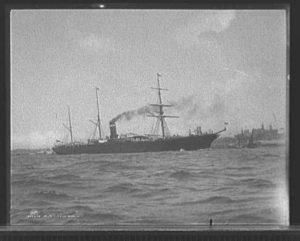I’ve been on a mission the past few days: finding our immigrant ancestors.
Immigration policy is highlighted daily in the news and the newly popular term “chain migration” is being touted as something negative that must be ended. My interest was piqued when I heard about the work of genealogists who have verified the so-called “chain migration” of several powerful and influential persons who want to drastically change U.S. immigration policy. It seems important that we are informed and knowledgeable about immigration history and the immigration stories of our own families as these conversations and policy decisions are made.
I usually research from those I know – my closest relatives/ancestors – and move back in time. It is what we are advised to do when we begin researching our family history. Sometimes I pay attention to ancillary relatives in the vicinity, but not always. I’ve never really paused to consider how many of “the immigrants” I have identified.
I challenged myself to identify the immigrants in my family and my husband’s family. And I challenged my Facebook friends to learn the immigration stories of their families. It’s not an easy task, and I was probably asking too much of my friends. On the other hand, it doesn’t seem too much to suggest that we at least ask the elders in our family what they know about the immigration history of our families and see what we can learn.
These are the questions I’m asking:
* Who were our (my family and my husband’s family) ancestors who first immigrated to the United States? How many of them have I already identified?
* Did the family follow a pattern of family reunification (what is being described as chain migration) with one person or family arriving, getting settled, and sponsoring the next family member or family unit? Or do our families have different stories?
* Can I determine (or make a good guess) about why they left their native country?
* And then there is the concept of “merit-based” immigration. How might our ancestors have fared if such a policy had been in place at the time?
I’m not sure how this will play out. In some cases, it’s already “Mission: Impossible.” Can’t find them; don’t know if I ever will. The stories of my husband’s Italian immigrants will surely be different than the immigration stories of my northwestern European ancestors. In fact, I’ve learned that the term “chain migration” was coined in academic writing to describe a immigration pattern common among Italian immigrants.
I’ll be sharing short posts on what I find or don’t find.
Do you know who your immigrants are?

